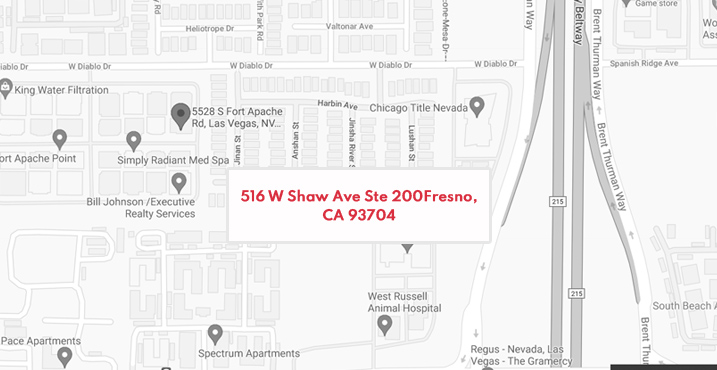It doesn’t matter how old you are; it’s always a good financial move to put essential estate planning documents in place. Doing so can spare your loved one undue stress in the event of your incapacity or death.
You should realize that having an estate plan matters doesn’t just affect your family when you die but also when you get sick or are otherwise incapacitated. Also, to prevent unforeseen financial changes (that you would not have wanted) and lessen your family’s stress, it’s a vital set of documents for anyone who depends on you.
For example, suppose you are in a severe auto accident and are conscious in the hospital. Do you know who would legally be empowered to control your finances, pay your bills, or take care of your children? Who would now run your business or even make critical decisions about your ongoing or needed healthcare?
Having even a basic estate plan in place will solve all these issues and more.
There are three primary documents in an estate plan. Each estate is unique, and more documents may be needed, but your Fresno estate planning law firm will advise you based on your situation.
The primary three documents are:
- A Last Will and Testament – your will dictate the distribution of assets solely in your name. This occurs using the legal process known as probate. If you don’t have a Will, California state law will determine which relatives may inherit your assets.
- A Durable Power of Attorney – A durable power of attorney remains in effect in the event of your incapacitation. A power of attorney is a formal legal document that empowers another person (your agent or attorney-in-fact) to make decisions for you. This authority of this other person commonly ends upon your death.
An Advance Health Care Directive – An advance health care directive is commonly used to describe two critical documents designed to address end-of-life decisions. These documents usually are your living will and a durable power of attorney for your ongoing health care.
We live in an overly complex world today, and it’s never too early to ensure you have estate planning documents. By simply consulting with your Fresno estate planning law firm, an expert in these matters, you will ensure that no matter what tragedy may occur, your family will have your continued guidance and forethought to contend with it.
Why Do I Want My Family To Avoid California Probate If Possible?
Probate, in California, is an official legal proceeding in which your estate is divided according to your will and other documents you’ve put in place before your death or incapacitation.
If a will does not exist, then California’s succession laws will make these tough decisions, which may not coincide with what you wanted to be done. Probate is also an unusually lengthy legal process (9-14 months) and involves a myriad of paperwork, time, and money.
Also, and importantly, all documents filed in a probate proceeding are a matter of public record, and most families may wish to avoid public scrutiny of their entire financial situation.
With a firm, well-formulated estate plan, probate may take place. Still, all the answers to serious financial, business, and other family issues have already been decided and are basically “carried out” by the courts. So, your predetermined wishes are kept intact.
How Do I Know if My “Estate” is Large Enough To Warrant an Estate Plan?
Commonly, if your estate has a value of $100,000 or more, which may include any, or all, of your real estate assets, you should consider an estate plan. You may confuse an estate plan with a will or trust. It’s true that your retirement estate plan may include a will or require a trust, but they are altogether two different legal entities. By consulting with an experienced and knowledgeable Fresno estate planning lawyer, they will thoroughly explain what your specific situation may need and be invaluable in making sure that your wishes are detailed and definitively conducted.
One hundred thousand dollars may not seem like much in today’s world, but most families’ homes already put them in this category. Remember that allowing your estate to go through probate upon death or total incapacitation is always a tricky legal situation. Your final wishes are important to you, so it’s vital that you properly draft a well-thought-out estate plan that will make your directives clear.
What My Occur If I Don’t Have an Estate Plan?
Suppose you die or are incapacitated and have no Estate Plan. Your family and all the people you love will have to go to Californian Probate court and fight over your assets and their rights. This may not only involve your house, but your bank accounts, investments, and even the guardianship of your children or other dependents.
If incapacitated, your family may be forced to argue at your bedside and go through the additional stress of deciding who will take control of all the various parts of your life. Especially the vital question of who will make health and end-of-life decisions for you.
Additionally, if your family goes to court for any reason, it will not only cost lots of money but also take years of everyone’s time.
Don’t take the chance of leaving these challenging and stressful decisions up to the courts, for even the closest family relationships may be destroyed.
I Believe I Need an Estate Plan; How Should I Proceed?
Even for a professional and experienced estate planning lawyer, California’s laws usually present a unique legal challenge in these matters.
You must consult with a local, professional estate planning law firm with specific California experience. Your empathetic lawyer will listen and understand the details of your family’s makeup and concerns. They’ll work out particular issues, which fit your unique situation, so your loved ones will know how best to proceed when the inevitable occurs.









